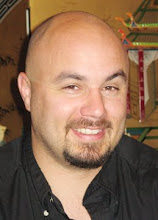
I've been thinking for sixteen months about why the loss of a child is so devastating. When my father died I was twelve, a death I witnessed; it was traumatic and terribly sad. I missed him. I questioned why. It was as though the foundation of my life had been destroyed, washed right out from under me.
I was afraid to believe, to trust, to love, for fear whatever I believed in or trusted or loved would be taken away from me. It took me years to get beyond that and give myself fully to relationships. And yet, that loss was nowhere near as hard for me as Leif's death has been. I have questioned why many times.
There are many reasons I could cite. I only knew my father for twelve years. I knew Leif for thirty-three. I was closer to Leif than I was to my father. We have the expectation (though not the certainty) of our children outliving us and not having to deal with their deaths. We have such hopes for their future. We miss the relationship and seeing the unfolding of their lives. Their death changes our identity, changes our lives, changes the future.
And yet, there was always something more that I couldn't quite grasp, couldn't figure out a way to explain. Now I think I can try.
For someone like me, whose deepest and most important emphasis as an adult has been my family, my children are my life's work. They are, more than anything else, what my life is all about. There is nothing I have done or will ever do that is as important as raising my children. They are the legacy I will leave behind.
There is no analogy that is adequate, but it is rather as though a sculptor has spent years creating a beautiful and meaningful sculpture, and that sculpture represents her life's work, the sum of who she is and her creations, but this sculpture goes beyond the inanimate smoothness of stone . . . it is alive, has volition, intellect, talents, consciousness. It is a child who talks, lives, breathes. It is the ultimate creation for someone like me. It creates itself as well.
It is a delight, a privilege, an honor, and yes, it is frustrating, sometimes infuriating; it is expensive and sometimes contrary. It is not easy to spend eighteen years molding this sculpture, assisting in its creation. It isn't easy to help continue to mold it after it has grown and left one's home and arms, but that process never ends.
So much of who I am is wrapped up in my sons and who they are, who I helped them to become. Nothing else I have done or will ever do will matter as much, be as rewarding, or as heartbreaking.
And that is why, one of the deepest reasons why, Leif's death is so hard. He was a beautiful sculpture, one of only two I created and helped to learn and grow, and now that part of my life's work is destroyed and gone forever. As though someone took a wrecking ball to a beautiful marble statue and crushed it to dust. Half of my legacy to the future is gone. Half of my life's work is destroyed.
And there is the added sadness that somehow I wasn't able to form and create his life so that he could either make better choices or continue to withstand the consequences of the choices he made, that I was unable to give him better luck in life or help him to find a purpose worth living for.
There is both the sadness of losing my beautiful son, my life's work, and the sadness of knowing that I somehow did not give him the tools to continue to create his own life, one in which he could prosper and be happy.
It is a terrible loss and a profound failure.
I know that there may have been no way I could help him achieve that sense of purpose and meaning in life; there may have been no way I could have influenced his misfortunes for the better, though I tried, but it will still feel like a failure. What can be more tragic than to throw away the gift of life? What can be sadder than to have decided to die at 33?
I brought him into this world with love and hopes and tried my best to give him all the tools he needed for a good life. He blew that life away with a 45. All my life I will remember not only all the good times, all the photos, all the conversations, the love, the embraces, but also that horrifying picture in my mind of him lying there in a pool of blood, dead and still, the gun on the kitchen counter.
How thankful I am that Leif was not my only child. How thankful I am that I have Peter Anthony, my first-born son.
And it will always be true that nothing I will ever do will be as important or as all-absorbing as raising my sons.
-----------------
The photo of Leif was taken in Kamakura, Japan in May 1981. He was six years old.





No comments:
Post a Comment